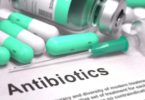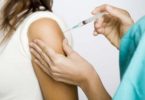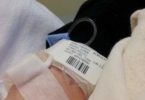People who do not drink alcohol do not get hangovers. People who drink small amounts of alcohol rarely get hangovers. People who drink nonalcoholic beverages or those will very small amounts of alcohol within them rarely get hangovers.
However, people who drink to the point of intoxication usually experience some hangover symptoms. Among those who drink until they are intoxicated, those who drink large amounts of alcohol generally have more hangover symptoms compared with those who drink less.
Therefore, the best cure for a hangover is to prevent it from happening in the first place by not drinking alcohol at all, or by drinking very modest amounts. There are other steps that can help in hangover prevention, but once the symptoms of a hangover begin, there are few options that actually bring relief.
When it’s last call…
Skip the brandy, whiskey, red wine, all of which have a higher concentration of congeners, chemicals believed to worsen alcohol’s effects. Instead, stick with a nightcap with a lower concentration, such as a lager, gin or vodka. The best choice? A lemon-lime soda. A recent study from China showed that a carbonated, sugary, lemon-lime beverage (similar to Sprite or 7Up) helped liver enzymes metabolize alcohol faster, reducing the production of acetaldehyde, the toxic byproduct of alcohol and a suspected cause of hangovers. Keep in mind that this study was done in dishes and test tubes in the lab and not on real, live, intoxicated people, so experts are still hesitant to call lemon-lime soda (or anything, really) a proven “cure” for hangovers. Nevertheless, the liquid in the soda is rehydrating, and the sugar can give you some energy for the trip home.
When your friend offers you a cigarette (because she knows you only smoke when you drink)…
Tell her about this Brown University study that found that university students who smoked while drinking were more likely to wake up with severe hangovers than students who drank the same amount but didn’t smoke.
When you arrive home and get the munchies…
Root through your kitchen cupboard for a can of chicken soup. The broth will help you replace lost fluids—not to mention the potassium and salt you’ve lost while repeatedly ducking into the ladies room—and the noodles are easy to digest.
When you realize that only eight hours stand between you and your wake-up alarm…
Go home and go to bed. Research shows that sleep deprivation makes a hangover worse, says Michael Fingerhood, MD, the chief of the division of chemical dependency at Baltimore’s Johns Hopkins Bayview Medical Center. Due to the very excellent chance you’ll be woken up at least once by nightmares, nature calling or the desire for a tall glass of fresh water, the sooner you lie down, the better. (Before your next big night out, plan to spend a couple nights staying in and getting at least 7 hours of sleep.)
When you wake up and your head feels like it’s full of rocks…
Take an ibuprofen (it’s best if you already have some food in your stomach; if not, eat some pretzels or another light snack). Though scientists are still analyzing the precise mechanisms of hangovers, Fingerhood says, they have found that non steroidal anti-inflammatory drugs like ibuprofen and naproxen can ease the ache in your head as well as in the rest of your body.
When you go to the diner for a pick-me-up breakfast…
Skip the bacon, sausage, cheese and any other greasy food you’ve heard will “soak up the alcohol.” There’s no evidence that fatty foods can make you feel better or more sober, says Daniel K. Hall-Flavin, MD, a consultant in addiction psychiatry at the Mayo Clinic—and they may make you feel queasy. If only you’d known that at dinner yesterday: Fatty foods (of any kind burgers and cheese as well as salmon and avocado) take longer to digest, so they slow the absorption of alcohol into the bloodstream.
When the day-after is half over and you’ve only made it as far as the couch…
Go for a walk or an easy jog. Forcing your body to get moving will distract you from the achiness and heaviness it’s probably feeling, Hall-Flavin says. What’s more, exercise triggers the release of endocannabinoids in the brain, which, Hall-Flavin adds, will put a positive spin on your mood. Keep it light and easy-to-moderate, and nix any class that takes place in a 100-degree studio, like hot yoga. “You can’t sweat out the alcohol, so this type of workout will only exacerbate your dehydration—and your hangover,” Hall-Flavin says.
And Nothing…
Sorry, friends, but when it comes down to it, there’s simply no remedy that will completely cure your hangover. So if you’ve got the luxury of a day off from work, just take it easy. Wallow in your self-loathing for a bit and then fire up the Netflix for a Scandal marathon as you vow to yourself, I’m never drinking again. We all know it’s a lie, but sometimes making false promises to yourself is the only thing that will make you feel better.
The Bottom Line on Hangovers
Drinking as much water as possible over the course of the evening and before you go to bed will relieve a great deal of the hangover symptoms caused by dehydration. But only time will cure the hangover symptoms caused by the alcohol poisoning effects of excessive drinking.





